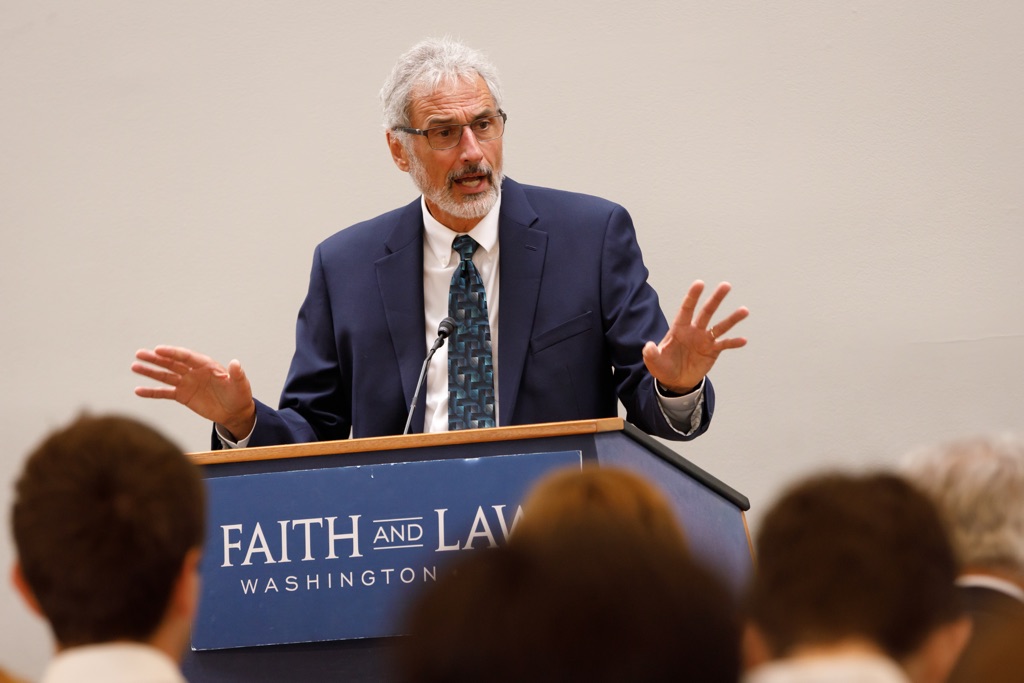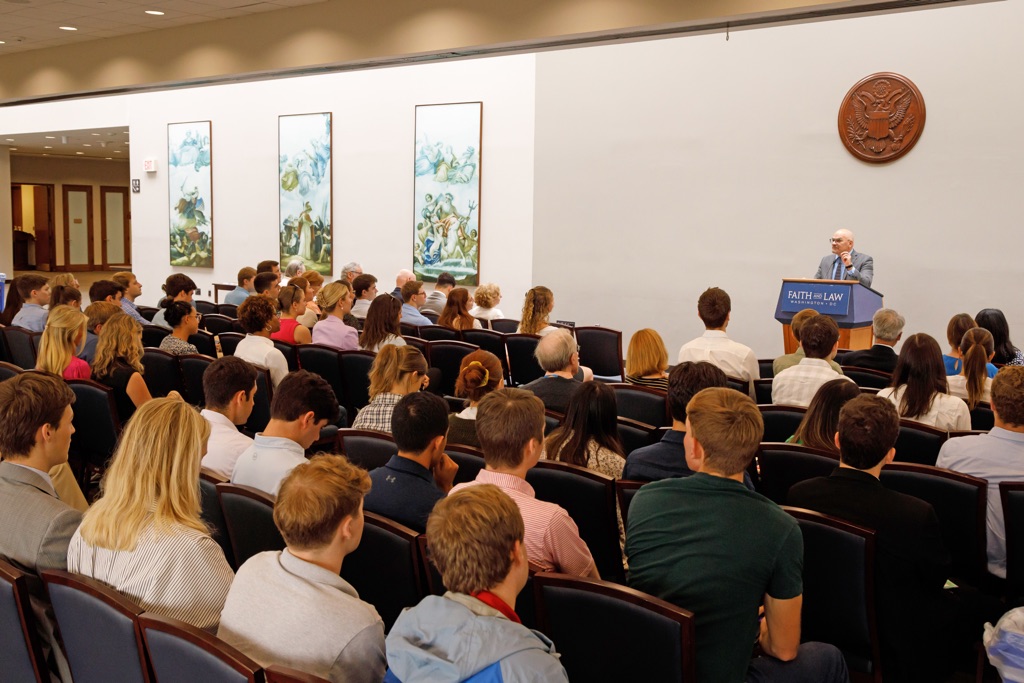Is politics a necessary evil? Or God’s gift for ordering life together?
How should we, as Christians, think about the role of government? And what is the biblical basis for our own roles as public servants? In a talk entitled, From God to Government: What does Creation have to do with Politics?, Dr. Vince Bacote, professor of theology at Wheaton College, sought to answer those questions by looking at the creational basis for political life. Contrary to the view that government is a “necessary evil,” Bacote argued that basic government – in the sense of organized stewardship – is inherent in God’s good plan for creation. “The management of common life together is political life,” he said. “It is part of human stewardship of God’s created order.”
Bacote underscored this point by considering the concept of sphere sovereignty, a term coined by Dutch theologian, politician, and pastor Abraham Kuyper in the 19th century to describe the various spheres of society into which God has called Christians to be salt and light. These spheres can include the church, family, education, economics, and government – anywhere where people work together to meet human need. Rather than one sphere seeking to dominate another, each exists under God’s sovereignty, which is “delegated into different social domains.”
While Christians should participate in all creational spheres, they should not try to turn “non-church domains into church domains.” Instead, Bacote urged Hill staff to discern the “creational ordinances” of each sphere, that is, how God designed things to run, and strive to promote the common good through their work. “God cares for the world. He is generous to the world. [Despite the fall] the world goes on and our political opportunity remains.”
We thank the Center for Public Justice for partnering with us to bring Dr. Bacote to Capitol Hill to share his insights into the biblical basis for politics – and the flourishing it can bring about.
Faith and Law is a non-profit ministry started by policy makers and for policy makers.







